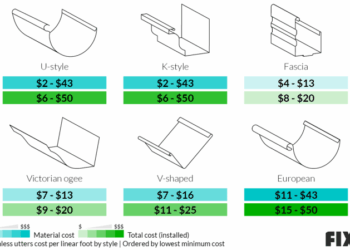Delving into the realm of Workers’ Compensation Insurance, this guide offers a detailed exploration that is both informative and engaging, shedding light on the intricate nuances of this vital aspect of the workplace.
In the following paragraphs, we will unravel the complexities surrounding Workers’ Compensation Insurance, providing valuable insights and practical advice for both employees and employers alike.
Importance of Workers’ Compensation Insurance
Workers’ compensation insurance plays a crucial role in ensuring the well-being of employees and the financial stability of employers. It is a type of insurance that provides benefits to employees who suffer work-related injuries or illnesses, covering medical expenses, lost wages, and rehabilitation costs.
Key Benefits of Workers’ Compensation Insurance
- Protection for Employees: Workers’ compensation insurance ensures that employees are adequately compensated for any injuries or illnesses sustained while performing job duties. This coverage provides financial support for medical treatment and helps replace lost wages during recovery.
- Legal Protection for Employers: By carrying workers' compensation insurance, employers protect themselves from potential lawsuits related to workplace injuries. This insurance helps shield employers from costly legal battles and ensures compliance with state regulations.
- Promotes Safety and Prevention: Workers’ compensation insurance encourages employers to maintain a safe work environment and implement proper safety measures. This focus on prevention reduces the risk of workplace accidents and injuries, benefiting both employees and employers.
Differences between Workers’ Compensation and Health Insurance
Workers’ compensation insurance is specifically designed to cover injuries and illnesses that occur in the workplace, while health insurance typically covers medical expenses unrelated to work.
Workers’ compensation insurance is a no-fault system, meaning that employees are entitled to benefits regardless of who was at fault for the injury. In contrast, health insurance coverage may vary based on the type of treatment needed and the terms of the policy.
Coverage and Eligibility
Workers' compensation insurance typically covers injuries or illnesses that occur in the workplace or are related to job duties. These can include, but are not limited to, the following types of injuries or illnesses:
Types of Injuries or Illnesses Covered
- Physical injuries from accidents, such as slips, falls, or equipment malfunctions
- Repetitive stress injuries like carpal tunnel syndrome from constant typing or lifting
- Occupational illnesses caused by exposure to harmful substances or conditions at work
In order for an employee to be eligible for workers' compensation benefits, the injury or illness must meet certain criteria. Here are some examples of scenarios where an employee would be eligible for workers' compensation benefits:
Scenarios for Eligibility
- An employee slips and falls while on the job, resulting in a back injury that requires medical treatment
- A worker develops asthma due to exposure to hazardous chemicals in the workplace
- An employee is diagnosed with carpal tunnel syndrome from repetitive tasks required for their job
For an injury or illness to be considered work-related and eligible for workers' compensation benefits, it must generally meet the following requirements:
Requirements for Work-Related Injuries or Illnesses
- The injury or illness must have occurred while the employee was performing work-related duties
- The injury or illness must be directly related to the employee's job tasks or work environment
- The injury or illness must be reported to the employer within a certain timeframe as required by state laws
Claims Process
When an employee needs to file a workers’ compensation claim, there are specific steps that should be followed to ensure a smooth process. It is crucial for both the employee and the employer to understand their roles in this process to avoid any delays or complications.
Steps for Filing a Workers’ Compensation Claim
- Notify your employer: The first step is to inform your employer about the injury or illness as soon as possible.
- Seek medical treatment: Make sure to get the necessary medical treatment for your condition.
- Complete the claim form: Your employer will provide you with the necessary paperwork to file a claim.
- Submit the claim form: Once the form is filled out, submit it to your employer or the workers’ compensation insurance carrier.
- Follow up: Stay in communication with your employer and the insurance company to ensure that your claim is being processed.
Role of the Employer
Employers play a crucial role in the workers’ compensation claims process. They are responsible for providing the necessary paperwork to the employee, reporting the claim to the insurance carrier, and cooperating with the investigation of the claim. Employers must also maintain open communication with the injured employee throughout the process.
Handling Disputes or Denials of Claims
- Appeal process: If a claim is denied, the employee has the right to appeal the decision.
- Mediation: In some cases, disputes can be resolved through mediation between the parties involved.
- Legal action: If all other options have been exhausted, the employee may need to seek legal representation to pursue the claim further.
- State agencies: Employees can also seek assistance from state agencies that oversee workers’ compensation claims.
Cost and Premiums

Workers’ compensation insurance premiums are calculated based on a few key factors. The primary factor is the classification of the business and the associated risk of injury. This classification is determined by the type of work employees perform and the likelihood of accidents or injuries within that industry.
Additionally, the size of the payroll, claims history, and location of the business also play a role in determining the premium cost.
Factors Affecting Premium Costs
- The nature of the business: Certain industries are inherently riskier than others, leading to higher premiums.
- Claims history: A track record of frequent or severe claims can increase premiums.
- Employee safety programs: Implementing safety measures and training can help lower premiums.
- Location: Different states have varying regulations and costs associated with workers’ compensation insurance.
- Size of the payroll: A larger payroll generally results in higher premiums.
Tips to Lower Costs
- Implement safety protocols: Creating a safe work environment can reduce the likelihood of accidents and therefore lower premiums.
- Invest in employee training: Properly trained employees are less likely to be injured on the job, leading to potential premium reductions.
- Regularly review and update policies: Keeping policies up to date with industry best practices can help mitigate risk and keep premiums in check.
- Work with an insurance agent: Consulting with an experienced insurance agent can help businesses find the best coverage options at competitive rates.
Conclusion
In conclusion, this guide has navigated through the maze of Workers’ Compensation Insurance, equipping you with a deeper understanding of its significance and implications. Stay informed, stay protected.
Question Bank
What types of injuries or illnesses are typically covered by workers’ compensation?
Workers’ compensation usually covers injuries sustained during work-related activities, as well as occupational illnesses developed due to work conditions.
How are workers’ compensation insurance premiums calculated?
Premiums are typically calculated based on the company's industry, size of payroll, and past claims history.
What are the key differences between workers’ compensation insurance and health insurance?
Workers’ compensation insurance specifically covers work-related injuries and illnesses, while health insurance provides broader coverage for medical expenses.











